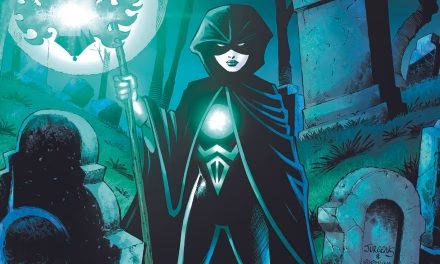It’s not ‘superhero fatigue’ affecting your media choices.
The problem isn’t superheroes. The problem isn’t too many superheroes. The problem isn’t ‘superhero fatigue’.

The problem is the lack of modern Hollywood’s creative forces being allowed to stretch their wings. It’s their ‘egomaniac fatigue’. It’s ‘lazy franchise’ fatigue. It’s ‘shit-writing’ fatigue. It’s ‘greed fatigue.’
What Hollywood needs is more risk taking, smaller movie budgets, and more creative diversity at every level, from the stagehands to the executive boardrooms. Hollywood’s insistence on making billion dollar blockbusters that don’t make their money back IS THE PROBLEM.
- Exhibit A: Zack Snyder and the failure of the DCEU. The blame is not totally Mr. Snyder’s though, there are plenty of corporate leadership failures to go around. With arguably one of the largest IP libraries in the print world, the inability to make a compelling DCEU can only be blamed on executive idiocy.
DC has had the animated Batman and Superman series, the animated Justice League and Justice League Unlimited and the outstanding Young Justice to show just how good the DCEU could have been. If they had just followed in the footsteps of those animated series, they would have been brilliant. They did not.
The lackluster performance of the DCEU is based in a complete lack of coordinated vision, a lack effective decision-making, a failure to lead, failure to plan, and a failure to adapt and learn from their mistakes. The leadership of the DC Universe has squandered of one of the greatest sources of intellectual property in the world.
- Exhibit B: Everyone wants to say it’s superhero fatigue but how then do you contrast the Marvel Cinematic Universe’s relatively consistent success? Given the Marvel Cinematic Universe managed to, at least until Avengers: Infinity War, coordinate, structure and carry out a well-executed series of franchise films with what have been considered the B-Teams of their Universe (the Avengers and the Guardians of the Galaxy is a testament to their coordination and understanding of the materials. Their television quality varies significantly and is still being analyzed.
- Exhibit C: Lazy franchise and shit-writing examples can be provided for almost EVERY major ongoing franchise in play today. Even those which have managed to produce consistent quality material are hampered by quality degradation due to production schedule stress, unnecessary economic hardships (see visual effects companies) and corporate greed trying to wring out the results of every contract in their favor.
While I do not consider providing fan-service as lazy writing, the two factors can overlap leading to a reduction in quality when done improperly. The first season of Star Trek Discovery is an example of nearly undoing an ongoing franchise, until it stabilizes in Season Two. The uneven quality of Star Wars’ Boba Fett harms an otherwise steadily-delivering, streaming franchise.
- Exhibit D: Hollywood Writers and Actors Strike precipitated by greedy corporations wanting to pay less and demand unrealistic concessions regarding virtual imaging, residual pay and the use of irresponsibly-sourced generative AI which completely benefited corporate Hollywood while completely disenfranchising all of the artistic, technical and creative staff necessary for the media production process.
When we hear lazy critics just spew forth sound bites like “superhero fatigue” but they do not take into consideration quality work which is continuing to be delivered such as Generation V (a spinoff of the popular but depraved superheroic series “The Boys”) or Amazon’s other superhero tentpole “Invincible” I have to assume what they mean is they are hoping Hollywood will make an effort to write other genres with the same effort and enthusiasm they put in to creating an entire decade of superhero media.
Superheroes are likely to sunset as creators, writers, and actors continue to expand their range, age out of contracts, or as the tastes of their audiences changes, which means the same companies who are benefitting from the current largess of superhero media may need to consider finding and promoting other forms of storytelling media.
They need to work toward engaging new and diverse writers, looking at media from around the world, and realizing if they want to stay in business, they need to PAY THEIR CREATIVES real money, the kind of money which inspires them to take risks, tell new stories, and experiment with new ideas which are the true currency of Hollywood.
A Hollywood which refuses to embrace new ideas is just lumbering along on the zombified remains of aging franchises mined from the 80s and destined to be replaced by other new forms of media willing to take the risks Hollywood once did when Roger Corman and his contemporaries made B-movies. Those terrible low-budget movies inspired an entire generation of future creators.
Streaming, online media, social media and video games have leveled the playing field and people are realizing they have choices. They don’t have to watch the 80s stream by in perpetuity. 30 years of the Simpsons, 20 years of Family Guy and 15 years of American Dad are a creative travesty and yet they go on, making the complaint about superhero fatigue an absolutely ridiculous premise.
There is a problem in Hollywood, but before blaming “superhero fatigue” I would look a bit closer at the “creative bankruptcy”, the lack of creative and directorial diversity, as well as the white men in suits who control what is created and limited Hollywood’s modern output to remakes, retreads, other constantly referenced IP from earlier generations.
-30-
![]()
Thaddeus Howze is an award-winning essayist, editor, and futurist exploring the crossroads of activism, sustainability, and human resilience. He's a columnist and assistant editor for SCIFI.radio and as the Answer-Man, he keeps his eye on the future of speculative fiction, pop-culture and modern technology. Thaddeus Howze is the author of two speculative works — ‘Hayward's Reach’ and ‘Broken Glass.’













You must be logged in to post a comment.